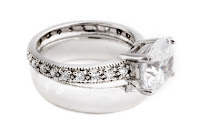Your homeowners’ insurance is a critical component to owning a home and making sure its value is protected from anything that might happen. But it doesn’t cover everything, especially certain valuable possessions you may have. Valuable Item coverage will provide you the protection you need for your most valuable possessions in the event of loss through theft, accident or natural disaster.
The unendorsed homeowner insurance policy covers your personal property but has limits on how much it will pay for certain items, such as furs, jewelry, collectibles, and fine art. It is best to adhere to the often-quoted proposition that special things require special coverage. Here’s a list of some of the things (this list is not exhaustive however), you may own that you should consider reviewing to make sure you have the correct coverage under your policy:
- cameras (video or still) and related equipment
- china and crystal
- coins (rare and current)
- firearms
- furs
- golfer's equipment
- jewelry
- musical instruments
- personal computers
- stamps (rare and current)
- silverware
- works of fine art, including paintings, etchings, pictures and other bona fide works of art (such as oriental rugs, statuary, rare books, manuscripts and bric-a-brac) of rarity, historical value or artistic merit.
Here are some quick suggestions for procedure if you’re thinking about getting your valuables covered by valuable item coverage:
- Share with your agent any particular items you’d like insured to make sure they’ll be covered.
- Keep documentation of your valuables’ worth in a separate location in order to ensure that their value will be returned to you.
- Make sure you understand the limits and exclusions of your policy or rider.
- Consider hiring an appraiser for particularly valuable items like collections or antiques whose value can be questioned.
If you have any questions regarding types of items covered by this type of insurance, or about how to get your own policy, don’t hesitate to contact us at 401-725-0070.










